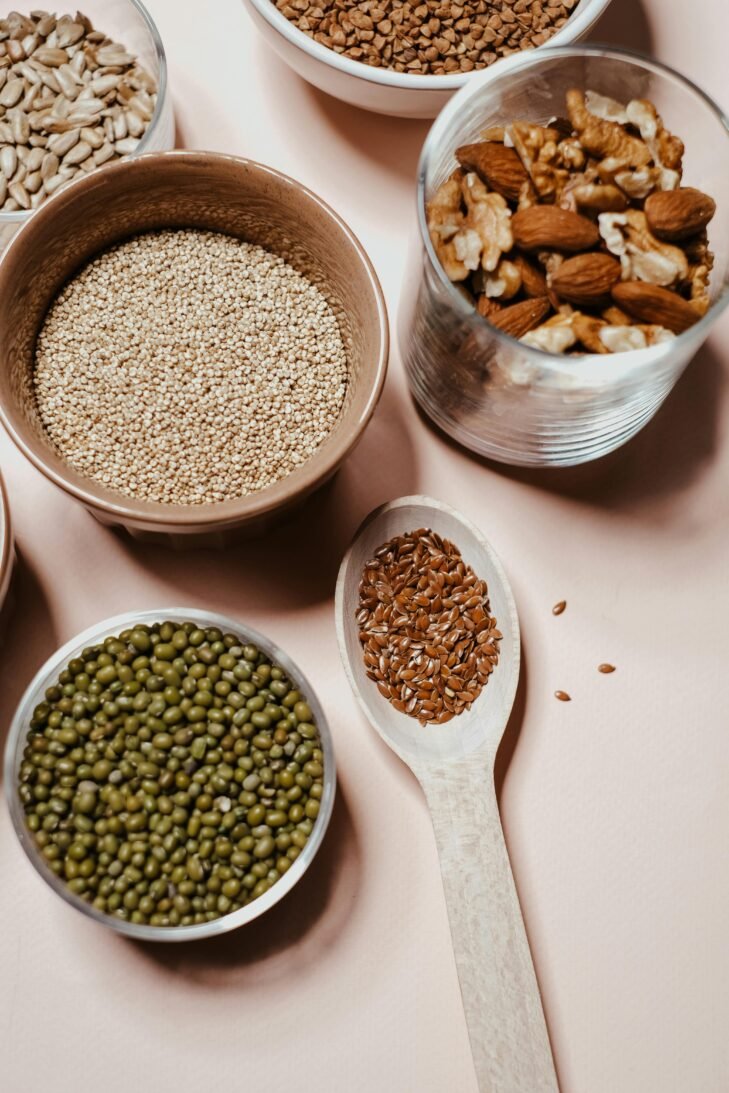Get Stronger, Smarter, and Healthier: The Top 5 Benefits of Protein

We often focus on carbs and fats, but protein is the real MVP(Most Valuable Player) when it comes to our bodies. It’s not just about building muscle and boosting energy – protein is the foundation of a healthy life. From keeping our organs functioning to supporting our mental wellbeing, protein plays a starring role in every aspect of our health.

What is Protein, Really?
Protein is made up of smaller molecules known as amino acids, which are fundamental for nearly every function in our body. Think of amino acids as building blocks: individually, they are valuable, but together, they form proteins that help build, repair, and maintain everything from muscles and tissues to organs and skin.
There are 20 amino acids, 9 of which are essential because our bodies cannot produce them. We must obtain them from our diet. Understanding the role of protein helps us appreciate its importance in our daily nutrition.
Why is Protein So Important?
Protein isn’t just a nutrient; it’s the structural foundation of our bodies. Without it, many essential bodily functions would come to a halt. Here are some key reasons why protein is vital:
1. Muscle Repair and Growth
One of the primary roles of protein is aiding in muscle repair and growth. Whether you’re engaging in physical activity or just aiming to maintain muscle mass as you age, this nutrient supports the repair of muscle fibers, making them stronger. For those focused on fitness, consuming sufficient protein after exercise helps optimize muscle recovery.
2. Hormone Regulation
Protein is vital for producing hormones that regulate various bodily functions. For example, insulin helps manage blood sugar levels, and growth hormones are crucial for development. Proper hormone balance is essential for overall health, and protein plays a significant role in maintaining it.
3. Immune Function
This nutrient is fundamental for a robust immune system. It helps produce antibodies, which are proteins designed to detect and neutralize harmful pathogens like bacteria and viruses. A diet rich in protein supports your body’s ability to fend off infections and stay healthy.
4. Tissue Repair
After injuries or surgeries, your body relies on protein to repair and rebuild tissues. This nutrient is essential for healing and regeneration, helping to restore skin, organs, and other tissues to their optimal state.
5. Enzyme Production
Enzymes, which are crucial for digestion and metabolic processes, are composed of protein. These biochemical catalysts facilitate various reactions in the body, from breaking down food to supporting cellular functions. Without adequate protein, enzyme production could be compromised, affecting overall health.
How Much Protein Do You Really Need?

The Recommended Dietary Allowance (RDA) for protein is 0.8 grams per kilogram of body weight for adults. For example, a 70 kg (154 pounds) individual should aim for about 56 grams of protein daily. Those who are more active or trying to build muscle may need more—up to 1.2–2.0 grams per kilogram of body weight.
Protein and Weight Management
One of the most underrated benefits of protein is its role in weight management. Protein has a high thermic effect, which means your body burns more calories digesting protein than it does fats or carbohydrates. So, including more protein in your meals can actually help boost your metabolism.
What’s more, protein is incredibly satiating. That feeling of fullness you get after eating a high-protein meal can reduce cravings and help you eat less throughout the day. It’s no wonder high-protein diets are often recommended for weight loss or maintenance!
Best Sources of Protein

There are countless protein sources available, both from animal and plant-based foods. Here’s a breakdown of some of the best options:
Animal-Based Protein
- Lean Meats: Chicken, turkey, and lean cuts of beef are great sources of high-quality protein. They also provide essential nutrients like iron and B vitamins.
- Fish: Fatty fish like salmon and tuna are not only packed with protein but also contain heart-healthy omega-3 fatty acids.
- Eggs: Eggs are one of the most versatile and complete protein sources out there. They’re affordable, easy to cook, and contain all nine essential amino acids.
- Dairy: Milk, yogurt, and cheese are excellent sources of protein and calcium, which supports bone health.
Plant-Based Protein
- Legumes: Lentils, beans, and chickpeas are high in both protein and fiber, making them a great choice for those following plant-based diets.
- Nuts and Seeds: Almonds, chia seeds, and hemp seeds are protein-rich and provide healthy fats.
- Tofu and Tempeh: These soy-based products are fantastic alternatives to meat and provide a complete protein profile.
- Quinoa: Known as a superfood, quinoa is one of the few plant-based foods that contain all nine essential amino acids.
Timing Your Protein Intake
To maximize the benefits of protein, timing is key. Instead of eating all your protein in one meal, it’s better to spread it out across your day. This helps stabilize your blood sugar levels, maintain energy, and keep your muscles supplied with the amino acids they need.
For those looking to build or repair muscle, the post-workout window is critical. Consuming protein within 30–60 minutes after exercising can significantly improve muscle recovery.
Do You Need Protein Supplements?
Protein supplements, like whey or plant-based powders, can be a convenient option for people who have higher protein needs or find it difficult to get enough through food alone. However, they should never replace whole foods. Real food offers a variety of other nutrients—fiber, vitamins, and minerals—that supplements simply can’t match.
Final Thoughts: Protein as a Cornerstone of Health
Protein is much more than a fitness fad or a trendy topic—it’s an essential component of a healthy lifestyle. By including a variety of high-quality protein sources in your diet, you’ll not only fuel your muscles but also support your immune system, improve your metabolism, and contribute to your overall well-being.
Take a closer look at how much protein you’re consuming each day. Small adjustments can lead to significant improvements in your health, energy, and vitality.
If you’re interested in optimizing other areas of your life, check out my previous newsletter on 6 Ways to Master Time: A Human-Centered Approach to Time Management.















